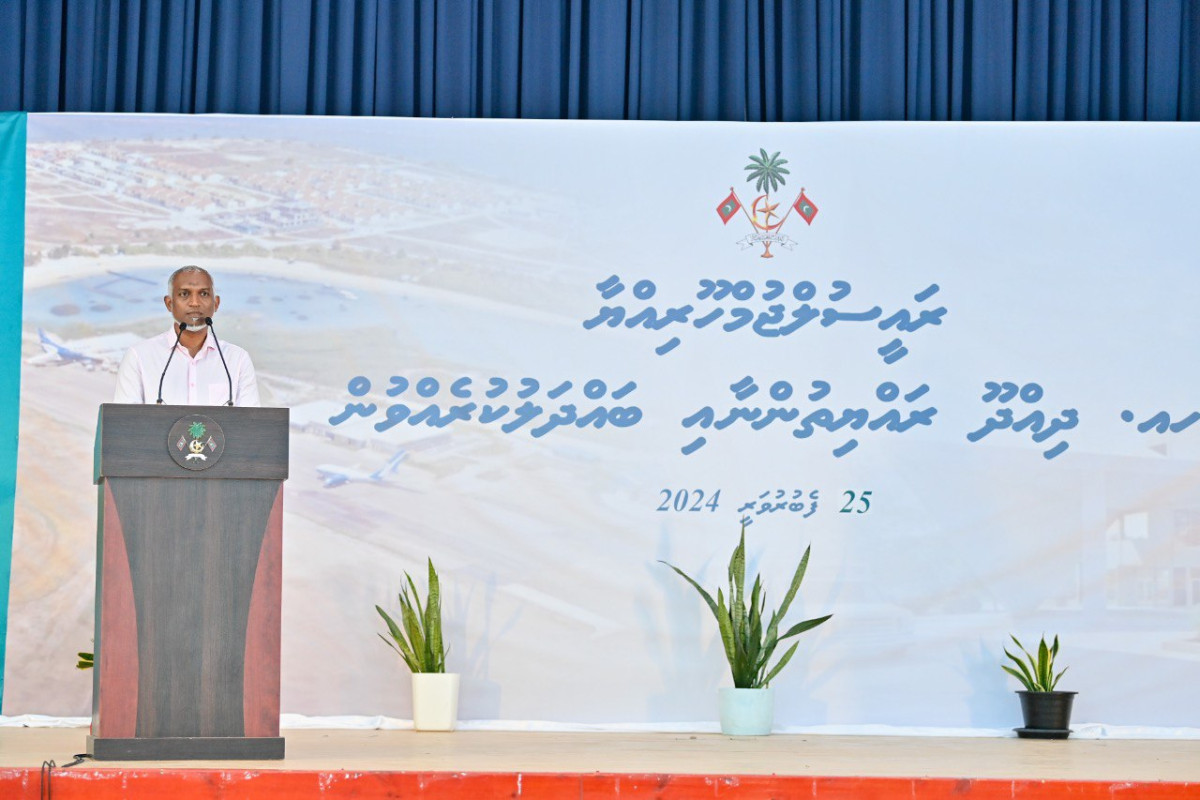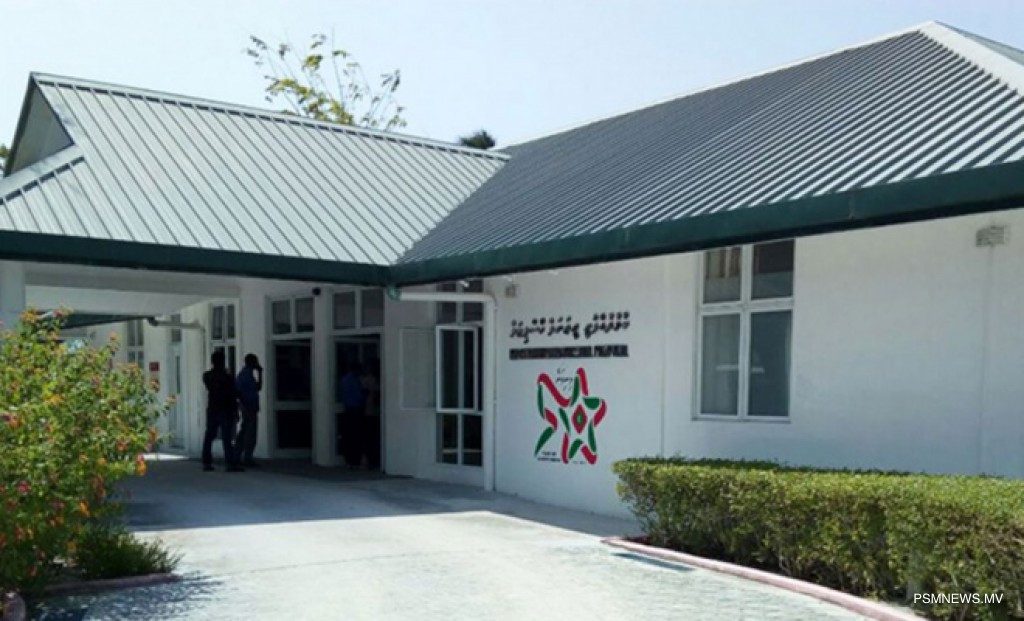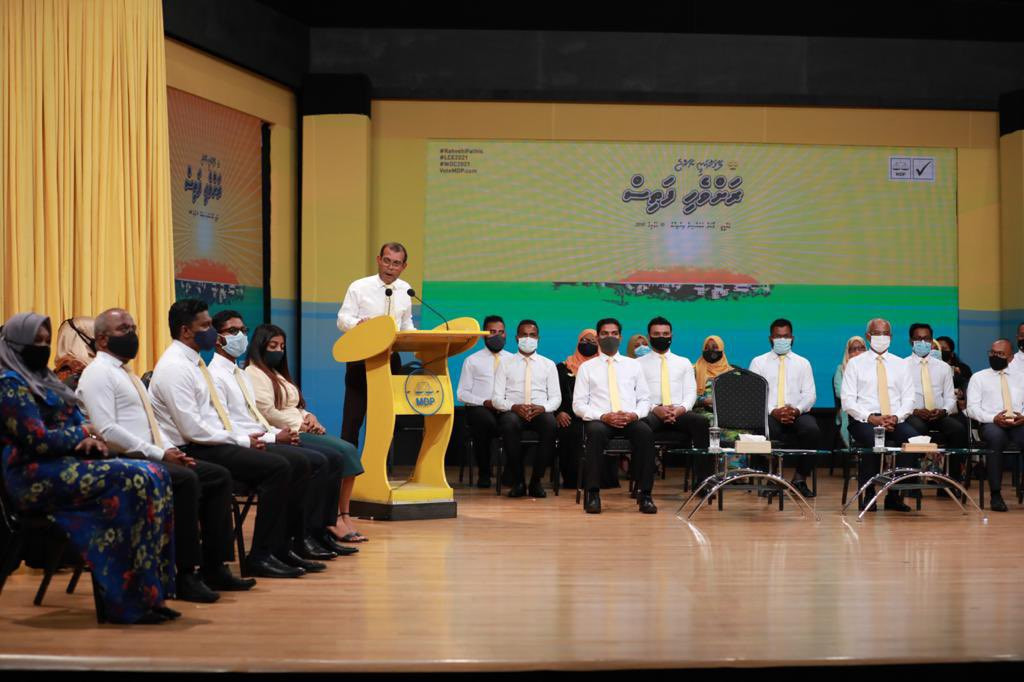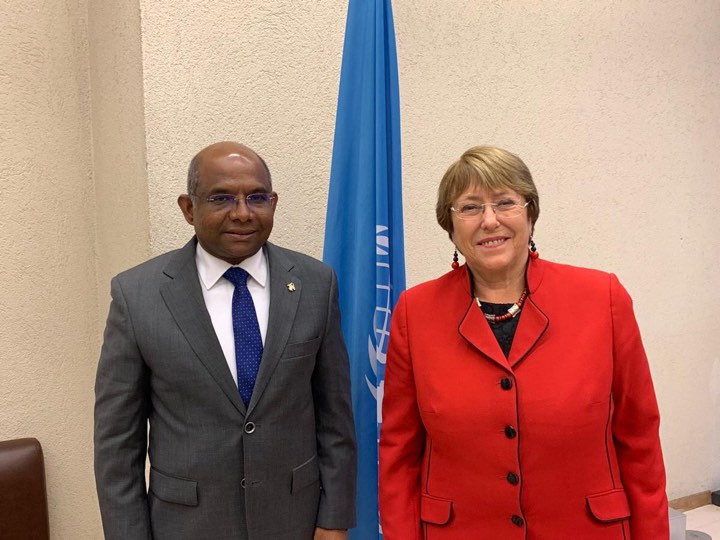Accountability gone, gov’t and Majlis are one, financial discipline crumbles!
Exploiting their unchecked control of the People’s Majlis, the incumbent administration is acting with impunity, disregarding responsibility. In this chaos, essential checks and balances have vanished, transparency has been sacrificed, and accountability has been completely abandoned.

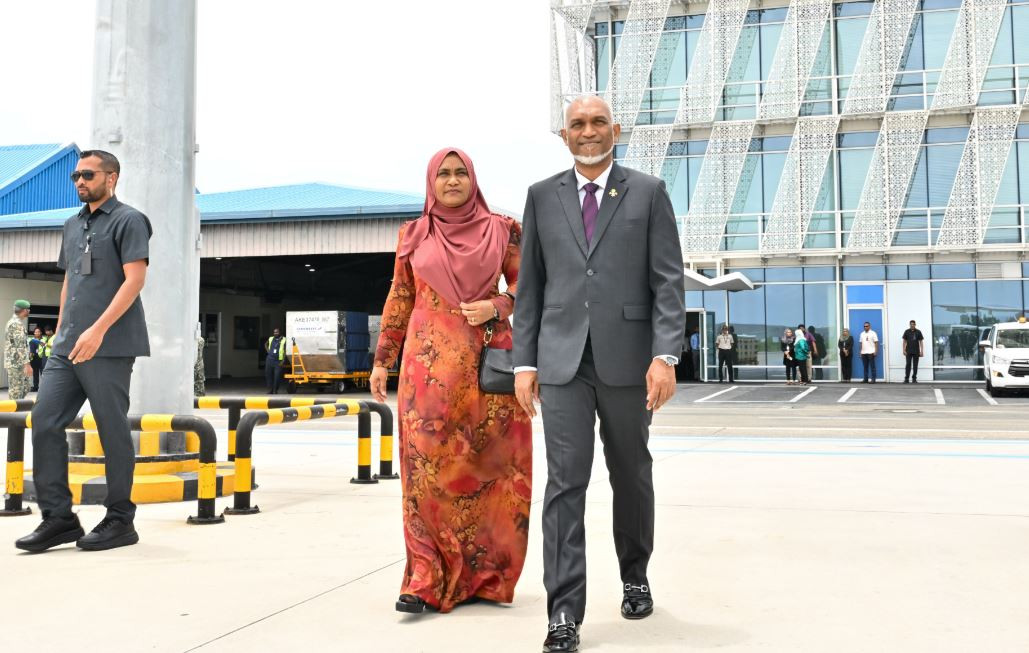
The first couple departing on a trip, at VIA
On Monday, the Budget Committee, comprising members of the Public Accounts Committee and the Economic Committee of the People's Majlis, passed the government-proposed MVR 5.1 million supplementary budget without any changes.
The government submitted the supplementary budget on October 24.
By the end of Monday, it had been approved by the committee as sent by the government.
There was no need for a debate either. With no visible development projects being implemented by the government, and no efforts to ease the lives of businesses and the general public, there is no need to even question how the budget is being spent.
There is no need to examine how the people's money in the public treasury is being spent. There are no signs or indicators of good governance.
With the supplementary budget proposed by the government, the total national budget for 2024 has increased to a record MVR 55 billion. With this addition to the previously approved budget of MVR 49.8 billion, no government in the history of the Maldives has ever received a budget of this magnitude.
Business tycoon and MP for Maamigili constituency Gasim Ibrahim, attempted to express goodwill for the nation at the committee but ultimately acted irresponsibly.
Gasim emphasized the urgency of action, stating "We must save our country from the current government without causing further harm, as the only way forward is to take every necessary step for our salvation."
He even added that "no one else will come to save us."
After speaking this way at the committee meeting on Monday, he proposed to pass the budget as submitted by the government without any changes.
Backed by MP for Hoarafushi constituency Ali Moosa and MP For Velidhoo constituency Mohamed Abbas, the proposal was passed by majority.
According to the Ministry of Finance, the supplementary budget was not submitted because the current budget was exhausted.
However, they want to keep the details of the expenditures confidential. The reason given for this was that expenditure in certain areas had increased. The ministry reported that as of September 30, a total of MVR 37.4 billion was spent. This means that by the end of September, 76 percent of this year's approved budget of MVR 49.8 billion had been exhausted.
It was claimed that the expenditure had exceeded estimates in certain areas and that the budget allocated for projects was insufficient. However, no work related to the island community has begun on any island.
People are struggling to make ends meet and small businesses have stagnated. It's puzzling that projects are stalled due to insufficient funding, even as the budget is quickly being depleted.
Even in the supplementary budget, a relatively large amount has been allocated for operational or recurrent expenses. While MVR 1.5 billion has been allocated for this, it includes MVR 24.4 million for salaries.
Although the incumbent administration claimed it would reduce the number of political positions and cut costs, they are doing the exact opposite. The government's goal is still to spend a large portion of the revenue on salaries. The most recent World Bank report also highlighted that the government has reduced capital investments and increased operational expenses.
The number of people serving in government political positions is being kept confidential and the amount of taxpayer money spent on these positions is also a secret. There is no desire to question or seek answers about any of these matters in the Budget Committee.
Further, the finance ministry has stated that MVR 200 million has been included for medical consumables, MVR one billion for subsidies and MVR 262.6 million for medical assistance.
MVR 3.6 billion has been allocated for capital expenditure, out of this, MVR two billion has been allocated for land reclamation, construction, and urban development.
In addition to this, MVR 441 million has been included for capital contributions, MVR 650 million for contingencies and MVR 458.4 million for student loans.
There are no details regarding the land reclamation and urban development included in the capital expenditure. It seems as though there is no need for the public to know what kind of activities of this nature will be carried out in the remaining two months of the year.
The finance ministry estimates that the supplementary budget will generate an additional revenue of MVR 640 million including MVR 61 million in taxes, MVR 379 million from non-tax sources and MVR 199 million in grants.
Despite this, the total budget deficit will reach MVR 18 billion. This means that by the end of the year, the debt-to-GDP ratio will rise to 118 percent. On the other hand, when the additional budget was passed as proposed by the government, officials from the Auditor General's Office had stated that the revenue mentioned in it would not be received as stated.
So, the plea to “save the country” and take the necessary measures, has devolved into mere empty words.
Maldives is required to repay large foreign debts, approximately USD 600 million in 2025 and more than USD one billion in 2026.
This includes a sukuk bond of USD 500 million. Leading credit rating agencies such as Moody's and Fitch have recently downgraded the Maldives' credit rating due to the perceived risk of debt default. While these issues persist, the incumbent administration of President Dr. Mohamed Muizzu does not seem to be considering the situation when managing expenses.
Rather than reducing expenses, the administration has multiplied them manifold and instead of decreasing future debt, the Muizzu administration has allowed it to grow.
Exploiting their unchecked control of the People’s Majlis, the incumbent administration is acting with impunity, disregarding responsibility. In this chaos, essential checks and balances have vanished, transparency has been sacrificed, and accountability has been completely abandoned.
It remains clear that the country is drifting without financial discipline, completely losing its way.

